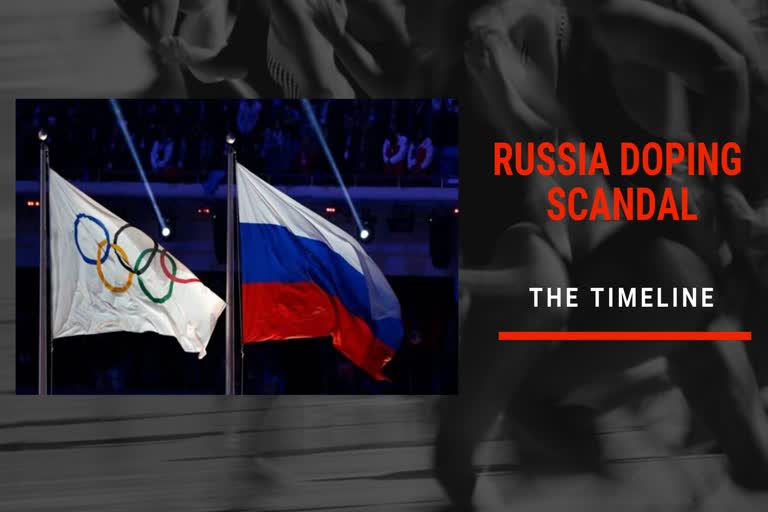Hyderabad: World Anti-Doping Agency’s leaders unanimously agreed on Monday to ban Russia from international sports including 2020 Tokyo Olympic Games for four years, the latest and severest punishment yet connected to a yearslong cheating scheme that has devastated global sport.
Russian athletes will be able to compete under a neutral flag and they will be allowed to compete in major events only if they are not implicated in positive doping tests or their data was not manipulated, according to the WADA ruling.
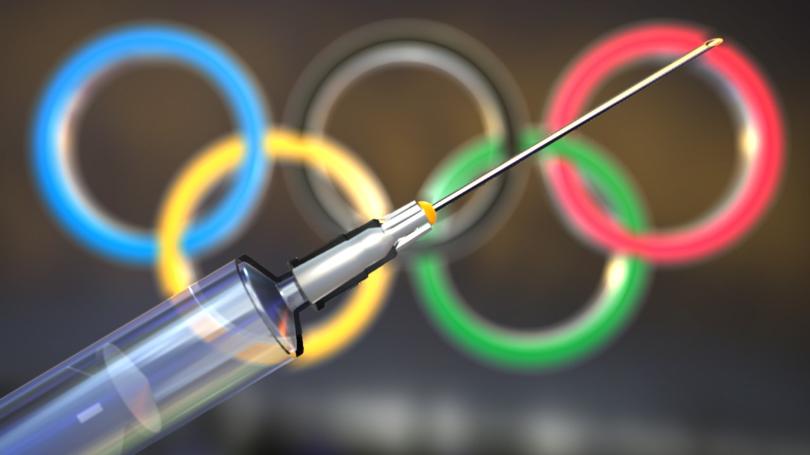
However, Russia will be able to compete at Euro 2020 next summer but they have been banned from the 2022 football World Cup.
Interestingly, Russia has been banned from competing as a nation in athletics since 2015.
Noticeably, doping in Russian sports has a systemic nature and 43 Olympic medals were stripped from Russia for doping violations, which is the most of any country, more than four times the number of the runner-up, and more than 30% of the global total.
Here's the brief timeline of long-running Russia doping controversy:
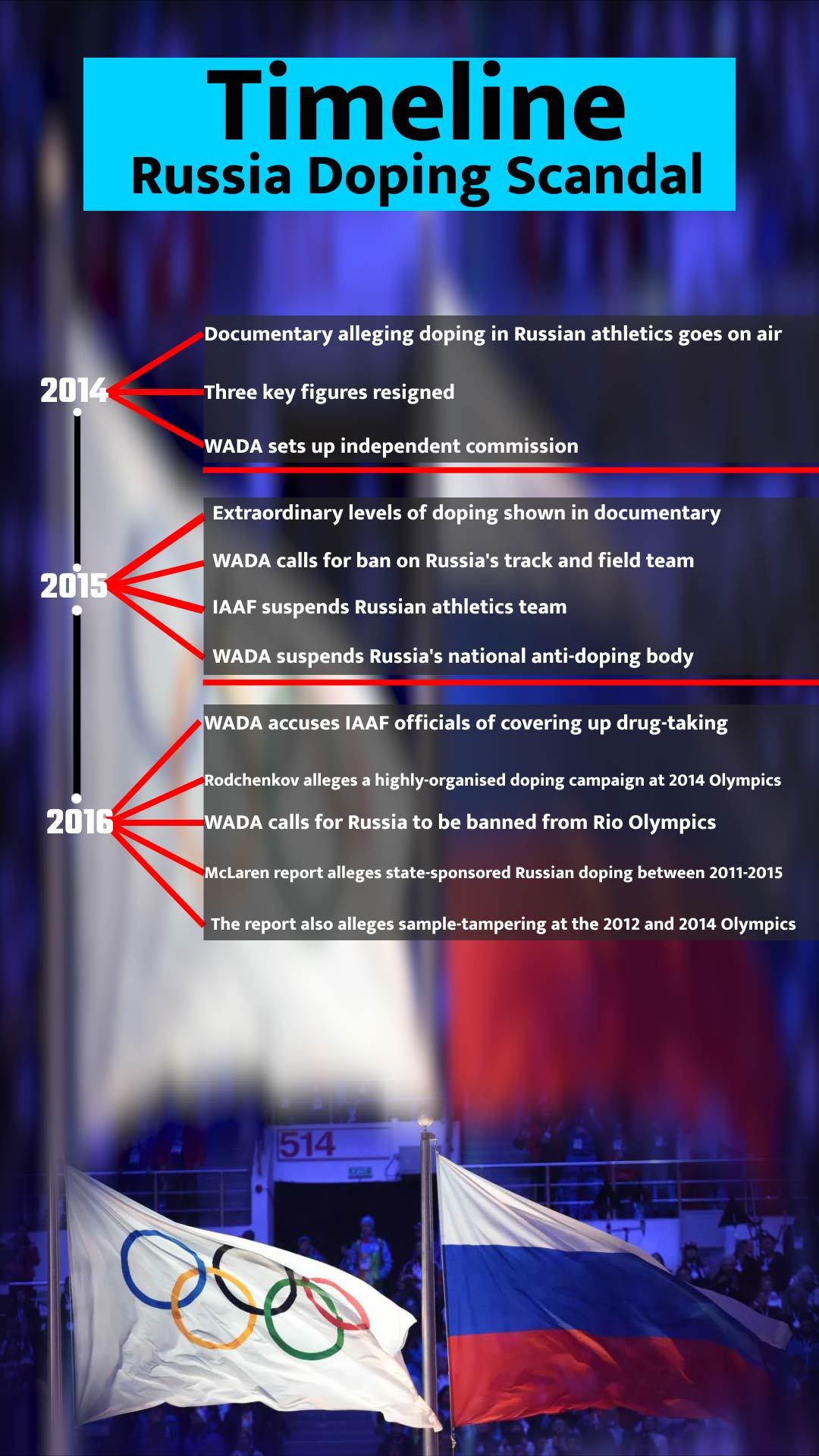
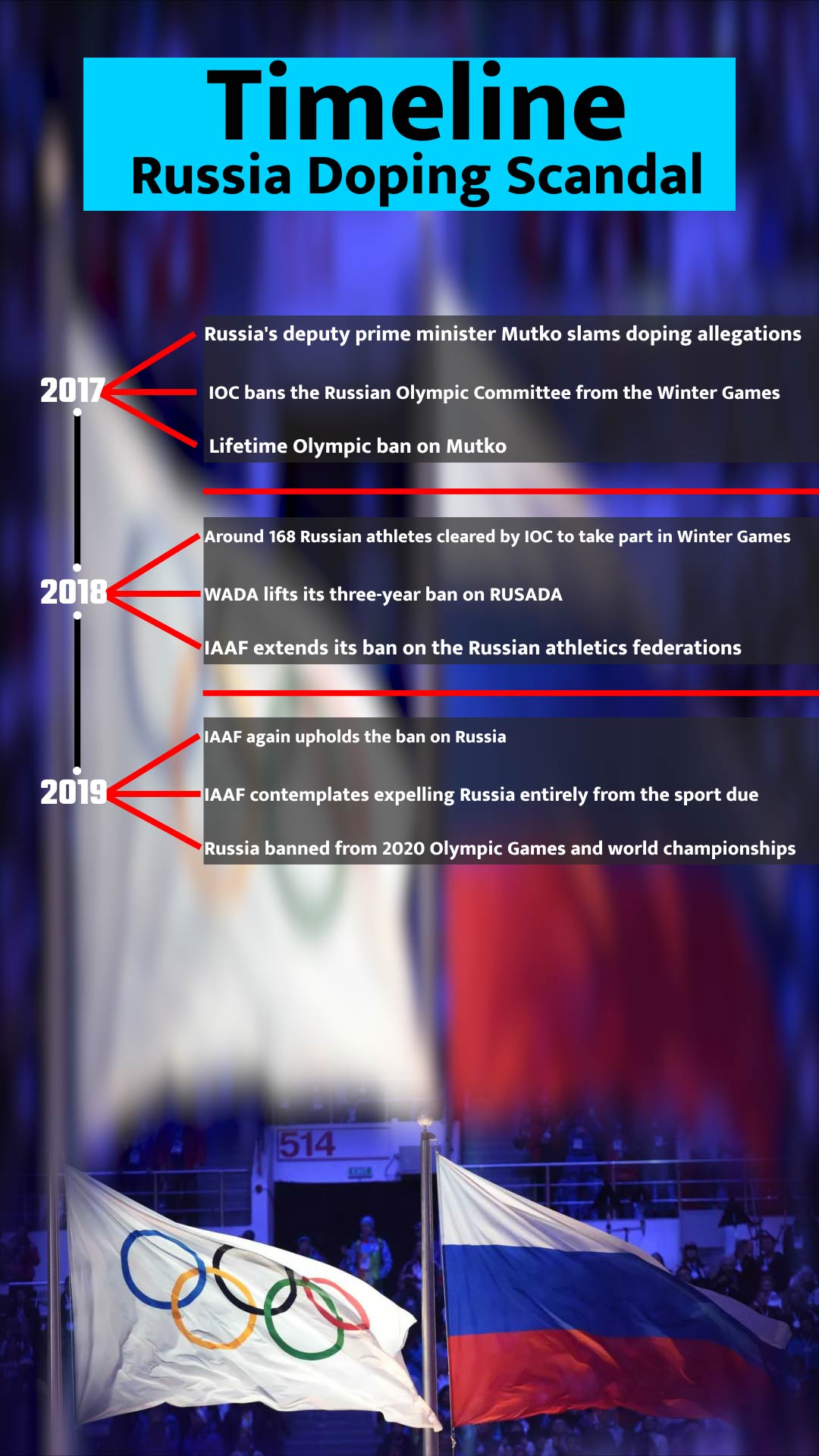
Here's the extensive timeline of Russia doping controversy:
2014: The beginning
- In December 2014 German broadcaster ARD airs a documentary alleging systematic doping in Russian athletics.
- It provokes the resignation of three key figures. Russian athletics chief and the treasurer of the International Association of Athletics Federations (IAAF), Valentin Balakhnichev, the IAAF's marketing consultant Papa Massata Diack, the son of then-IAAF president Lamine Diack, all step down.
- WADA sets up an independent commission headed by its former chief, Dick Pound, to investigate the claims.
2015: Russia banned
- ARD airs a second documentary in August with new accusations aimed at Russian and Kenyan athletes based on a leaked IAAF database which reveals “extraordinary” levels of doping.
- WADA releases a report in November calling for Russia's track and field team to be banned from international competition, including from the 2016 Rio Olympics, until “state-sponsored” doping is eradicated.
- The IAAF suspends the Russian athletics team and WADA also suspends Russia's national anti-doping body (RUSADA) over non-compliance.
2016: The McLaren report
- WADA publishes a second report into doping and corruption accusing high-ranking IAAF officials of covering up drug-taking.
- In May Grigory Rodchenkov, the former head of Moscow's anti-doping laboratory who has fled Russia, goes public alleging a highly-organised doping campaign at the 2014 Sochi Olympics.
- Barely two weeks before the Rio Olympics in July, Canadian law professor Richard McLaren releases an explosive WADA report outlining state-run Russian doping at the Sochi Games and other major events. WADA calls for Russia to be banned from Rio.
- The International Olympic Committee stops short of an outright ban and says individual federations will have to decide whether to allow Russian athletes to compete.
- The second part of the McLaren report is published in December, alleging state-sponsored Russian doping between 2011 and 2015, with sample-tampering at the 2012 London Olympics and Sochi 2014.Representative image
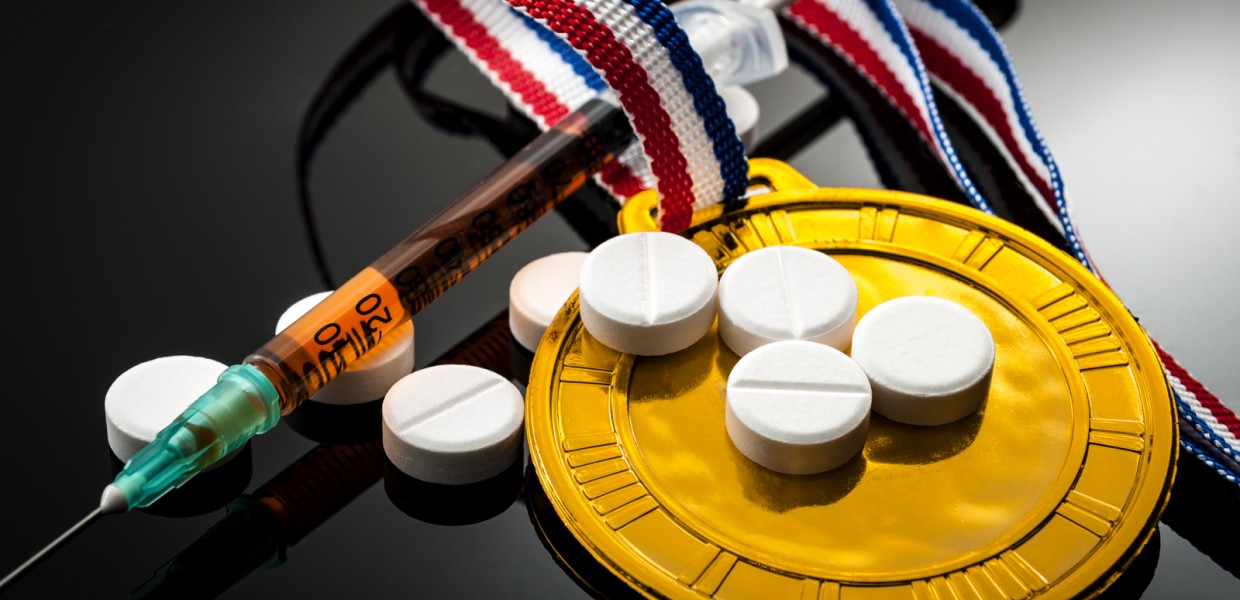
2017: Mutko responds
- In December 2017 Russia's deputy prime minister Vitaly Mutko slams doping allegations before the draw for the 2018 World Cup in Russia.
- The IOC bans the Russian Olympic Committee from the Pyeongchang Winter Games but allows clean Russian athletes to take part as neutral competitors. Mutko receives a lifetime Olympic ban.
2018: RUSADA reinstated
- Some 168 Russian athletes are cleared in January by the IOC to take part in Pyeongchang.
- In May, Mutko loses his sports brief in the Russian government shortly before the World Cup kicks off.
- WADA controversially lifts its three-year ban on RUSADA in September, despite not having been granted access to its doping-tainted Moscow laboratory.
- IAAF extends its ban on the Russian athletics federations (RUSAF) saying certain criteria for reintegration had not been met.
2019: More WADA recommendations
- January: Russia finally hands over data from a Moscow laboratory to WADA in January.
- June: The IAAF again upholds the ban on Russia in June despite hailing “positive developments” including access granted to the Moscow lab.
- September: In September WADA gives Russia three weeks to explain “inconsistencies” in the lab data.
- The IAAF, now re-named World Athletics, maintains a ban on the Russian athletics federation pending analysis of the data.
- Russia's anti-doping agency chief Yuri Ganus tells German magazine, Der Spiegel, in October he believes data handed from the laboratory to WADA has been intentionally manipulated.
- November: Ganus tells WADA's world conference in November his agency, RUSADA, had become “a hostage to the crisis” triggered by the falsified information.
- Russia's sports minister Pavel Kolobkov later denies the data handed to WADA had been doctored.
- Days later World Athletics announces it has suspended the reinstatement process of Russian athletics and was contemplating expelling the country entirely from the sport due to doping affairs.
- In a dramatic announcement on November 25, WADA's Compliance Review Committee recommends Russia be banned for four years from “major” sporting events competitions when the global anti-doping watchdog's Executive Committee meets in December.
- It also recommends Russian representatives be barred from boards or committees or any other bodies of any signatory to the World Anti-Doping Code.
- December: Russia banned from the 2020 Olympic Games and world championships in a range of sports after the World Anti-Doping Agency (WADA) ruled to punish it for manipulating laboratory data.
